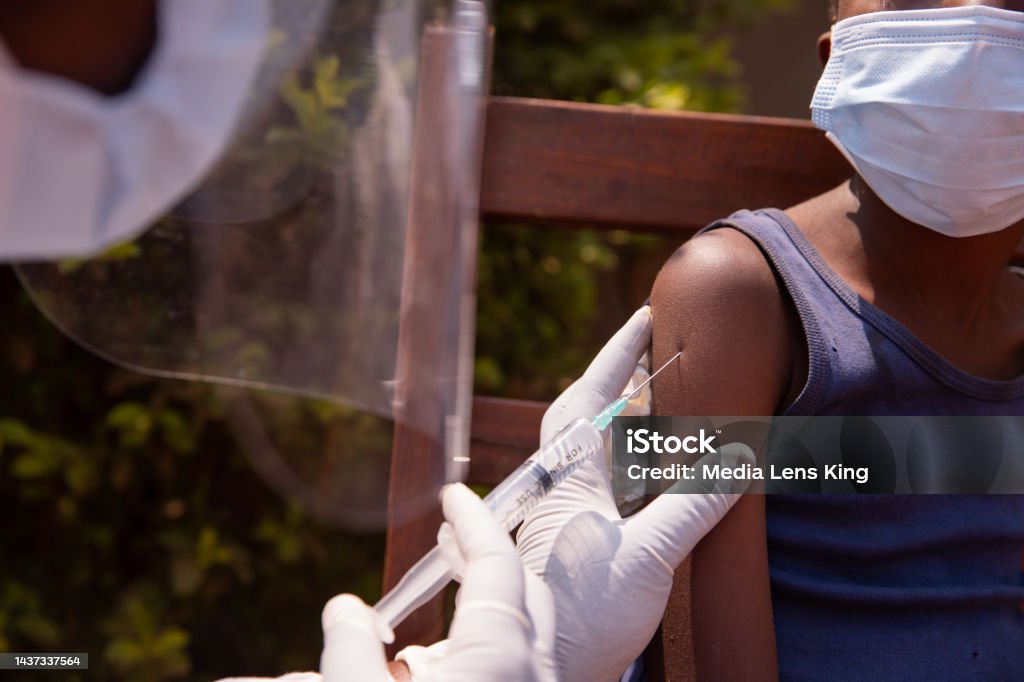Tetanus, commonly known as “lockjaw,” is a serious bacterial infection caused by Clostridium tetani. This bacterium releases a toxin that affects the nervous system, causing muscle stiffness and spasms. Tetanus can be life-threatening, especially without timely medical intervention. Understanding its causes, symptoms, and treatment options is essential to preventing severe complications. Here’s a simple guide for recognizing and dealing with tetanus.
What Causes Tetanus?
Tetanus bacteria, Clostridium tetani, are found in soil, dust, and animal feces. They enter the body through breaks in the skin, such as cuts, punctures, or burns. Wounds from rusty nails, contaminated objects, animal bites, and even minor scrapes can introduce the bacteria into the bloodstream, where they release a potent toxin that spreads throughout the body.
People at the highest risk of tetanus infection are those who haven’t been vaccinated, especially if they frequently handle soil or animals. Additionally, newborns in areas with inadequate hygiene practices are at risk of neonatal tetanus, which is often due to unclean birthing practices or infected umbilical cord stumps.
Key Symptoms of Tetanus
Symptoms of tetanus typically appear within 3 to 21 days after infection, though the average is around 10 days. Here are the primary signs and symptoms to watch for:
- Muscle Stiffness and Spasms
Muscle stiffness, especially in the jaw and neck, is one of the first signs of tetanus, often leading to the term “lockjaw.” As the condition progresses, stiffness can spread to other muscles, causing spasms in the abdomen, chest, back, and limbs. - Painful Muscle Contractions
The bacterial toxin in tetanus affects the nervous system, leading to painful muscle contractions, particularly in the jaw, neck, and abdominal areas. These spasms can be intense, disrupting normal activities and causing significant discomfort. - Difficulty Swallowing
Many people with tetanus experience trouble swallowing due to muscle stiffness around the throat. This symptom is particularly dangerous as it may affect the ability to breathe or eat comfortably. - Stiffness in Abdominal and Back Muscles
Back and abdominal muscle rigidity is common in tetanus patients. In severe cases, these muscles may spasm so intensely that the body arches backward, a condition known as opisthotonos. - Fever and Sweating
In response to infection, the body may develop a fever and begin sweating profusely. This is a natural immune response, but it can lead to dehydration if not managed properly. - Rapid Heart Rate and High Blood Pressure
Tetanus toxins stimulate the nervous system, causing an increase in heart rate and blood pressure. This combination can be dangerous, particularly in individuals with preexisting heart conditions. - Breathing Problems
As tetanus progresses, muscle stiffness can spread to the respiratory system, making it hard to breathe. Without proper medical support, breathing difficulties may lead to life-threatening complications.
Complications of Tetanus
Tetanus can lead to serious health complications if left untreated. Some of these include:
- Fractures caused by intense muscle spasms
- Pulmonary embolism (blood clots in the lungs)
- Pneumonia due to aspiration of fluids or food
- Difficulty breathing due to muscle stiffness around the lungs
- Long-term nerve damage
Treatment for Tetanus
Tetanus is a medical emergency that requires prompt treatment. The primary goals of treatment include neutralizing the tetanus toxin, easing muscle stiffness and spasms, and providing supportive care to prevent complications. In most cases, treatment may include:
- Tetanus Immunoglobulin (TIG) to neutralize the toxin
- Antibiotics to eliminate the bacteria
- Muscle relaxants to manage spasms
- Pain relievers to alleviate discomfort
If you or someone you know is experiencing symptoms of tetanus, it’s crucial to seek professional medical advice immediately. For convenient access to healthcare, consider using the Virtual Doctors App to connect with qualified doctors, or download the Virtual Doctors Healthplus App on Google Play to book an appointment.
Prevention: The Importance of Vaccination
Vaccination is the most effective way to prevent tetanus. The tetanus vaccine, often administered in combination with vaccines for diphtheria and pertussis (DTaP or Tdap), provides long-lasting immunity. It’s recommended for children and adults, especially those who handle soil, work in agriculture, or have frequent contact with animals.
Tetanus is a serious infection that affects the muscles and nervous system. Recognizing the symptoms early can make a significant difference in recovery. If you notice symptoms of tetanus, contact a healthcare professional promptly. Book a consultation with a doctor on the Virtual Doctors App or the Virtual Doctors Healthplus App on Google Play for expert advice. Preventative care, especially vaccination, is key in reducing the risk of tetanus infection and complications.
